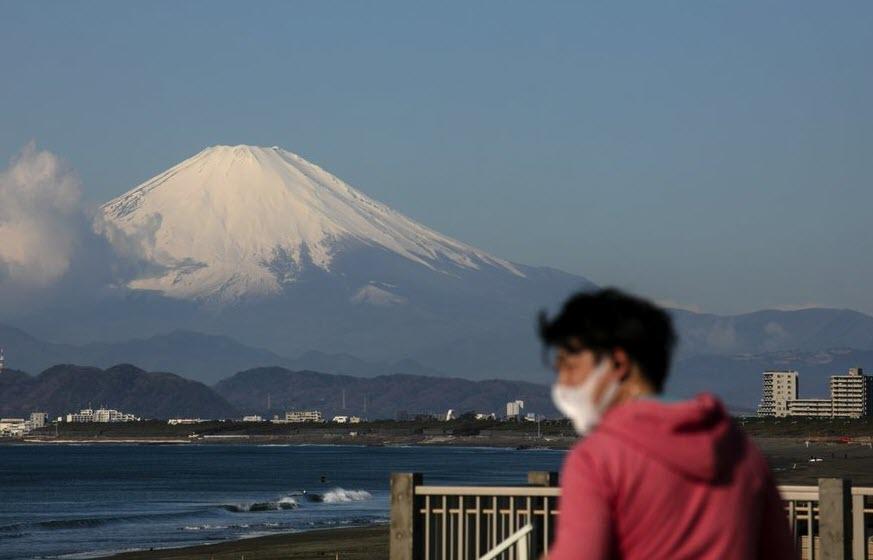“That Would Stink!” – IOC, Japan Face Billions In Losses As Olympic Cancellation Concerns Go Global
Several weeks after Japan started canceling sport and cultural events amid the broadening of the Covid-19 outbreak, Japanese Olympic organizers discussed on Tuesday the possibility the Games could be postponed.
Haruyuki Takahashi, one of the Tokyo 2020 organizing committee’s executive board members, said the Games could be delayed for one or two years. Takahashi said canceling the Games would have significant financial ramifications.
“I don’t think the Games could be canceled. It’d be a delay,” Takahashi told The Wall Street Journal. “The International Olympic Committee (IOC) would be in trouble if there’s a cancellation. American TV rights alone provide them with a huge amount.”
Kazuhiro Tateda, an infectious disease expert of the Japanese government, said the fast-spreading virus could be sticking around a lot longer than many have anticipated, despite the upcoming warmer season.
“Unlike the flu that disappears with warmer weather, the response to the new coronavirus, I think, will have to continue for half a year or a year,” Tateda told NHK on Tuesday.
For their part, the International Olympic Committee and local organizers say the games are on, but the clock is ticking…
“From what we know from numerous other mass-gathering events including sporting events, it is very easy to spread diseases worldwide from such events – from meningitis to Zika,” Dr. Ali Khan. an epidemiologist and dean of the College of Public Health at the University of Nebraska, told the AP.
“Besides welcoming athletes and spectators with their tiny microbes, there is and may be ongoing disease in Japan.”
To safeguard against any unexpected events, such as a continuation of the virus crisis that could extend into the July period when the Games start, the IOC can postpone the two-week event and float expenses through 2022. The IOC has, in the past, bought an insurance policy on the Games that will help cover financial losses associated with a delay or cancellation.
The IOC’s annual reports show it paid almost $14.4 million in an insurance premium to protect against canceling the 2016 Rio Olympics and $12.8 million for a policy to cover the 2018 Winter Olympics in Pyeongchang, South Korea.
But, it is unclear if such a policy is in place for Tokyo as when IOC President Thomas Bach was asked last week after an executive board meeting if the insurance premium has risen to as much as $20 million for a Tokyo policy, he replied: “I don’t know, it wasn’t discussed at this EB.”
Although it would be shocking if they had not.
Not only would a cancellation of the Games would cause major disruptions to the international sporting calendar, it would have severe financial implications not just for the IOC, but for Japan and the world.
As AP reports, Tokyo is officially spending $12.6 billion to organize the Olympics, although a national government audit office says it’s at least twice that much. Andrew Zimbalist, a professor of economics at Smith College in Massachusetts, said construction cost for one venue in Japan was $1.43 billion. The local organizing committee budget of $5.6 billion is private money, with the rest coming from Japanese taxpayers. About $1 billion in the local operating budget is to come from ticket sales, which would be lost if the games go ahead without fans in empty stadiums.
“Some combination of the IOC, the broadcasters, and the insurers will lose big,” Victor Matheson, a sports economist at the College of the Holy Cross in Worcester, Massachusetts, said.
“That loss is coming out of someone’s pocket depending on how all of the contracts are written.”
Matheson adds that athletes are the most vulnerable from the financial shock:
“For athletes, their career length isn’t long and in many sports success in the Olympics is your one shot at a financial return.”
Aside from government officials coffers, athletes, coaches and sports officials, local organizers, and fans will be gutted too…
“I’ve heard things about possibly the Olympics being canceled, and I think that would stink,” J’den Cox, a two-time world champion wrestler and an Olympic bronze medalist, told AP News.
“It would probably break everybody’s heart if that were to happen.”
The AP notes that 73% of IOC’s income is derived from selling broadcast rights. NBC made up at least half of those broadcast payments in the last Olympic cycle. Another 18% of the IOC income is from selling sponsorships. NBC parent company Comcast said its contract with the IOC and insurance would allow it to escape losses if cancelation was seen. However, NBC would lose hundreds of million dollars in ad money.
While there’s billions of dollars on the line, if it is with the IOC, Japan, broadcasters, sponsors, etc., there’s a strong possibility that at this point in time, if the virus continues to spread across the world, the Games would likely be delayed.
For now, an Irish bookmaker is showing odds leaning slightly toward the Olympics not going forward. Odds are 4-6 it will not open on July 24 in Tokyo, and even that it will.
Tyler Durden
Tue, 03/10/2020 – 21:05
via ZeroHedge News https://ift.tt/3cNjJ0v Tyler Durden

